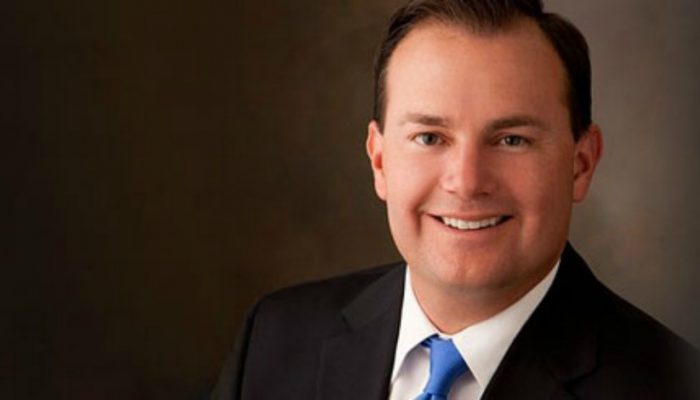
Senator Mike Lee, the junior senator from Utah, gave an interview for reason.com in which he discussed the Tea Party faction of the Republican party, the struggles the Republican party is having in connecting with young voters and how his Mormon faith influences his world view.
Born in Mesa, AZ, Mike Lee later grew up in Provo, UT when his father, Rex E. Lee, became the founding dean of the J. Reuben Clark Law School. He spent two years in Virginia during his childhood where he grew up next to several prominent politicians like Robert Byrd and Strom Thurmond. Harry Reid, another prominent member of The Church of Jesus Christ of Latter-day Saints, served as his family’s home teacher while they were in Virginia.
The interview with Nick Gillespie is about 20 minutes long, but you can fast forward to 16:40 for Lee’s comments on how his Mormonism shapes his policies and his daily life. Below is a transcript of that part of the interview.
Beginning at 16:40
GILLESPIE: Does your faith inform your politics? Should voters care about a politician or a leader’s faith?
LEE: First of all, my faith informs everything I do. It certainly informs how I do my job, how I treat my family, and how I interact with other so yes it informs everything I do.
GILLESPIE: What is the essence of your faith? Is it “do unto others…”
LEE: It’s following Jesus Christ, the redeemer of the world, the Son of God who took upon himself the sins of mankind and made it possible for us to receive forgiveness and to be resurrected after this life. As to the second part of your question, there are many who share my faith, who don’t share my view of government. I’m certainly not willing to assume as a voter that simply because someone else shares my faith that they’re going to get my vote. As a voter what I look for is whether somebody shares my view of government and its proper role. That person may or may not share my faith; that person may or may not have any faith. I’m hiring them not to be my minister. I’m hiring them to represent me in government. I want to know what they think the proper role of government is. If they’re running for federal office I want to know what they think the proper role of the federal government is, how they read the constitution, whether they see this as some kind of open-ended conversation-starter or whether they view it as actually meaningfully restricting the power of the federal government.
GILLESPIE: Faith in Congress, the Gallup poll just came out recently. Seven percent of people have a lot of confidence in Congress. It’s a historic low. Around the Reason office the question was like, “Who are those seven percent and have they been in a cave.” So it seems like there’s a lot of energy towards a libertarian or a conservative movement for smaller government. How do we know that candidates and elected officials get it, that they are signing onto limited government, constitutional government, and responsible government?
LEE: I think most of the time we know whether they get it based on what they tell us. The battle lines are becoming a little clearer every day when people are learning what a true limited government conservative looks like. What a true limited government conservative is willing to say and identify as a bright-line rule.
GILLESPIE: Does that work? You famously primaryed a long time incumbent. Are primarying candidates generally a good idea, even if the challenger doesn’t win? Like McDaniel versus Thad Cochran in Mississippi it’s an analogous situation. Is that a place where the lines are kind of clearly drawn, where you have a guy who has been in power for a long time and always seems to be happy to go along, spend a lot of money, versus a challenger. Is there a clear choice there for you on whom to back in that situation?
LEE: In order for the Republican party, or any political party for that matter, to be able to lay any claim to being a party of principle, there needs to be a robust debate within that party. And for that to occur I think primary elections will always need to happen.





